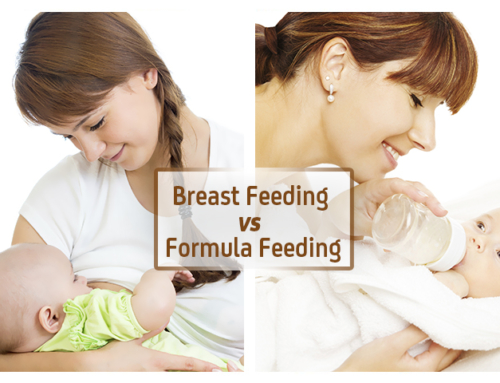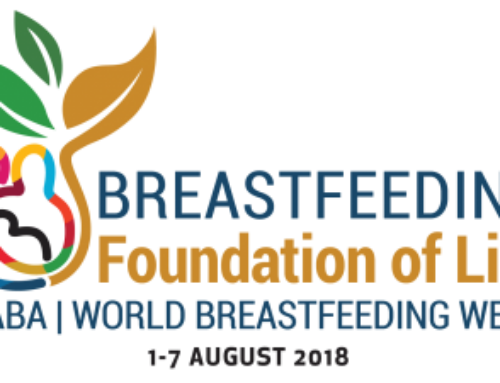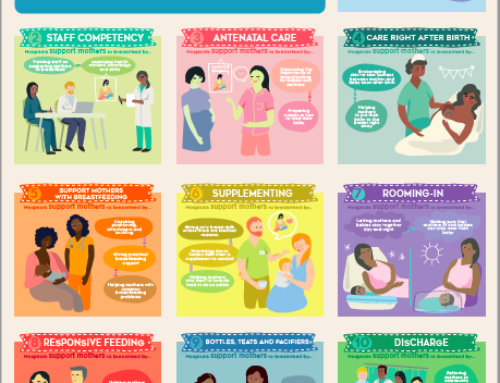This post was inspired by a question from Sally who directed me to the article below debunking the many “benefits” touted in blogs and sites about breastfeeding beyond a year. I was going to make it an Ask EP, but felt a post itself was warranted. But a huge thanks to Sally for getting this on my radar!
There’s a fair amount of people out there who argue that there’s no reason to breastfeed a baby beyond a year and that it is gross, wrong, awful, etc. We’ve seen that whole debate play out after Time released their controversial attachment parenting cover. But there is also a growing number of people who are arguing the opposite – that by weaning earlier, we put our children at risk of various problems that breastmilk provides an antidote to. Kelly Mom has a whole page of citations about the benefits to breastfeeding beyond a year. But in comes Good Enough Mummy who decided to really tackle the question of what the evidence shows. I should note now that she is actually quite fine with women breastfeeding beyond a year, but argues the whole point is that you want to, not that there are any inherent benefits in doing so.
First let me say that the research Good Enough Mommy debunks should be debunked. She’s right. I’ve taken a look at the articles myself and they do not find what people have been trying to claim for them and that’s a problem we must face when we take another person’s account of what an article says without researching it ourselves (which I acknowledge isn’t always possible given the cost of accessing these articles). So in that sense I must applaud what Good Enough Mummy has done and brought to light the limitations of the research on breastfeeding and toddlerhood.
But that still isn’t the whole story.
In fact, I would argue that she’s still wrong, despite having taken apart the studies mentioned on Kelly Mom and other sources. And here’s why…
Cancer
Good Enough Mummy acknowledges that breastfeeding beyond a year “slightly” reduces a woman’s risk of breast cancer. I would argue it’s a bit more than slight given that it’s cancer. But that may just be me – if I’m told I can reduce my risk by 2% I’m probably taking it. In one reanalysis of studies (which GEM links to), there’s a 4.3% risk reduction for every 12 months of breastfeeding (this is above and beyond other risk factors) Unfortunately, breast cancer is one of the only types of cancer for which there is research going beyond six months of breastfeeding. Due to the rather low rates of breastfeeding, most studies consider anything beyond six months to be “long-term” breastfeeding. For many childhood cancers, not breastfeeding greater than six months increases the risk factor for these cancers (see Two B’s and The Big C), but it’s unclear what happens at the year mark. I will say that I for one would be completely shocked if it came out that there was simply no effect at a year. It may be a small effect, but again, looking at the outcome (i.e., cancer), it’s an effect I’d still consider valuable, even if small. In fact, there are other researchers who simply take it for granted that the risk for various cancers remains increased past the year mark if not breastfeeding because the idea of it stopping at one year flies in the face of logic[3]. Good Enough Mummy agrees that breastmilk in toddlers in developing nations is an invaluable source of nutrition and acknowledges there are studies that support that. We agree on that. Her idea, though, is that in Western nations with our plethora of food sources, we need not worry about these issues unless we have picky eaters (so there is an acknowledgement that parents with picky eaters will benefit from breastfeeding beyond a year). What I’d like to challenge here is the idea that most children over a year are getting adequate nutrition from the foods they eat. Research on the topic of toddler nutrition has highlighted a few findings that are pertinent here: So while we can probably all agree that there are children who obtain all their needed nutrients from foods outside of breastmilk starting at a year, I think it’s a far cry from the norm. In fact, food-related insecurities plague parents of Western nations perhaps like no other thanks to our vast amounts of fast food and cheap, unhealthy food sources. Though this is completely anecdotal and I have not a shred of evidence to back it up, I would be curious to see the link between full-term breastfeeding and diet as many women I’ve come into contact with don’t use breastmilk to compensate for an unhealthy diet, but rather to compliment a healthy one. Regardless, if 35% of toddlers are deemed picky eaters and even more are only eating a bit at each meal, it seems that a suggestion that more women should consider full-term breastfeeding (and thus work to normalize it in our society) is not out of sorts or lacking forethought. And I think it goes without saying that the majority of children in Western cultures are eating diets that are processed and lacking many of the nutrients we would expect them to obtain if they were eating whole foods like fruits and vegetables. Other Health Factors One of the reasons to believe that infections and other health benefits are conferred into the second year of breastfeeding is from research showing that the immunological factors in human breast milk are stable in the first two years[8]. If the immunological factors remain constant, it follows to reason that there will be other health benefits, though arguably they will not be as strong as in the first year as the child’s own immune system is stronger in the second year. However, many people mistakenly assume that the immune system is fully developed at an early age and that’s simply not the case – in fact, while the immune system is always improving in childhood, it is not until adolescence that it’s fully developed. However, in Western societies there are fewer diseases to contend with which allows individuals to argue that the benefits of breastmilk are fewer. And there is some truth to this, but there are still myriad diseases that toddlers are exposed to for which the immunology of breastmilk may confer protection. For example, depending on when your child is introduced to gluten, there’s evidence that breastfeeding at the time of introduction (which can be after a year in some cases, as it was for my daughter) is related to a 52% reduction in risk of developing Celiac Disease[9]. Conclusion Where I most disagree with Good Enough Mummy is the interpretation that the evidence is against the idea of health benefits of breastfeeding beyond a year in Western societies. Instead I would say that we simply don’t have the research to make any conclusions, though I believe that the research on toddler diets and immunology would suggest there would be benefits if thoroughly examined. They won’t be as large as the benefits in the first year of life, but no one is claiming that they would be (as far as I’ve heard). Whether it be immunological protection or simply supplementing diets that are probably less than ideal in getting children the nutrients they need, there are some benefits to breastfeeding beyond a year. As for the rest? Only time and research will tell. [1] Collaborative Group on Hormonal Factors in Breast Cancer. Breast cancer and breastfeeding: collaborative reanalysis of individual data from 47 epidemiological studies in 30 countries, including 50 302 women with breast cancer and 96 973 women without the disease. The Lancet 2002; 360: 187-95. [2] The Cancer and Steroid Hormone Study Group. The independent associations of parity, age at first full term pregnancy, and duration of breastfeeding with the risk of breast cancer. Journal of Clinical Epidemiology 1989; 42: 963-73. [3] Piovanetti Y. Breastfeeding beyond 12 months: an historical perspective. Pediatric Clinics of North America 2001; 48: 199-206. [4] Reau NR, Senturia YD, Lebailly SA, Christoffel KK. Infant and toddler feeding patterns and problems: normative data and a new direction. Journal of Developmental and Behavioral Pediatrics 1996; 17: 149-53. [5] Horodynski O, Mildred A, Hoerr S, Coleman G. Nutrition education aimed at toddlers: a pilot program for rural, low-income families. Family & Community Health 2004; 27: 103-113. [6] Montague MC. The physiology of obesity. ABNF Journal 2003; 14: 5660. [7] Vozoris NT, Tarasuk VS. Household food insufficiency is associated with poorer health. The Journal of Nutrition 2003; 133: 120-6. [8] Goldman AS. Immunological components in human milk during the second year of lactation. Acta Pediatrica Scandinavia 1983; 72: 461-2. [9] Akobeng AK, Ramanan AV, Buchan I, Heller RF. Effect of breast feeding on risk of coeliac disease: a systematic review and meta-analysis of observational studies. Archives of Disease in Childhood 2006; 91: 39-43.
Toddler Diets and Nutrition






Great article! Job well done 😉
Awesome thanks! I felt very confused after reading that article by GEM. Although we are bf-ing happily at 14 months with no end in sight I think it’s easy to start doubting yourself when you have little support around you. I knew you’d be able to examine the article rationally and clear up the confusion. Thanks again.
This struck me as incredibly sad. We shouldn’t even be in a situation where women *need* support for a nursing relationship that’s going well, because we should be in a situation where it’s seen as entirely a woman’s own business (well, and I guess that of the rest of the family) what she chooses to do with regard to nursing or weaning. But instead, we live in a society where women’s decisions are so second-guessed and criticised, and nursing for the ‘wrong’ duration is so condemned, that you can be happily breastfeeding your child and enjoying it and content with your decision and yet be left feeling confused and self-doubting by an article just because it tells you that there isn’t actually any objective evidence of benefit to breastfeeding a toddler – *even though* that same article tells you that it’s fine to breastfeed for however long you want and should be your own business. That’s one hell of an indictment of the society we live in.
I’m sorry you had such a rough time from other people for a choice that suited you and your child and wasn’t any of their business. I hope nursing continued to go happily for you. But, if you look back at that article again – I hope this time you’ll see that it was *not* aimed at making any woman who wants to breastfeed doubt her decision to do so. Quite the reverse.
Great article! I feel like just because there isn’t solid research supporting extended breastfeeding doesn’t mean that there aren’t benefits. Although it most certainly isn’t the norm. I was on a plane recently and was breastfeeding my 1yo and I got a lot of stares and one woman asked me old my daughter was very disapproving when I told her. She even said “well you must be weaning her right?”. I can’t see how its her business but I said that wasn’t the plan anytime soon. I definitely think we need to change peoples attitudes!
Everytime I hear someone say ‘well it’s good for 3rd world but over *here*…(fill in the blank)’ all I can think is what a load of racists crap!
Humans are humans. If breastmilk is ideally suited to provide the right balance of nutritian to an African villiager than it’s just as ideally suited to provide the right balance of nutritian to an American suburbanite. Should my kid get a *less* ideal substitute because I could, theoretically, gather enough different foods to more or less match what’s in the ideal real thing? (Same thing with development. If an tribal 6 year old is smart and responsible enough to 1) care for younger siblings, 2) make food, 3) tend a fire, 4) go foraging around miles from home weilding a machete how dare someone suggest my kid is too stupid and immature to do similiar activites, his light skin or country of origin didn’t make *my* kids into helpless idiots)
It’s physiologically normal and historically normal to breastfeed past age 2, which means it’s up to the ones who want to make ‘normal’ into ‘abnormal’ to prove that the traditional and normal way of doing something is harmful in comparision to their new method. Maybe, maybe, there isn’t a huge body of evidence ‘proving’ that normal term breastfeeding is *more* beneficial than short-term breastfeeding (I think i’d disagree), but that’s not the standard. If they want us to reject the tried and true normal way of doing something then *they* need a body of evidence clearly showing that short-term breastfeeding is *more* beneficial than normal term breastfeeding. So far, I’ve never seen a *single* thing that even begins to suggest that a 2 or 3 year old who still breastfeeds is *less* healthy or developmentally injuried/challenged than one who was weaned early.
UGH, why would you ever want to be just “good enough”?? Don’t we as moms always strive for better? I read the article you linked to and was not impressed. She spouts more opinion then ever. Keep up the good work!
I picked the ‘Good Enough Mum’ title in homage to a blog post from another blogger. Here’s the story: http://goodenoughmummy.wordpress.com/2009/05/31/how-the-good-enough-mum-blog-got-its-name/
GEM’s blog is so impressive to me because she’s right – I was taking Kellymom advice at face value, did not question their research summaries, and I should have been more vigilant (and Kellymom should be ashamed of themselves for misrepresenting and misinterpreting available research). I’m sure you are hampered in your rebuttal by the scarcity of research but sadly this post cannot be a true advocacy for breastfeeding beyond one year (aside from the rather impressive 33% breast cancer reduction risk) as it’s mostly anecdote and conjecture. I think GEM’s final point really resonates with me “nursing or not nursing a child of that age are equally good options to go for and thus we can happily leave this one in the realm of personal preference where it belongs.” So even though I’m disappointed that I can no longer justify nursing my 20 month old (while pregnant!) as being highly beneficial, we all agree that I shouldn’t have to justify it at all.
I agree and disagree. Scientifically speaking, it would be incredibly bizarre if the benefits seen up to a year suddenly disappear. Truly beyond belief strange. So in one sense you can probably assume there are benefits and important benefits. But really we just need the research!! So while you may not want to say you’re providing a benefit, if we had to make an educated guess, you are.
And yes, we shouldn’t have to justify it though. (Still a great research area though!)
Isn’t it also evolutionarily or at least anthropologically true that a normal lactation/ nursing period in humans is 4 years? That would mean there is an adaptive advantage to it even if we do not yet know what it is. I believe my source on this is Meredith Small.
It’s between 2 and 5 years depending on the tribe type (so hunter-gatherers nurse longer than farming communities). However, there just doesn’t need to be a disadvantage for there to not have been an evolutionary change. So we can say there’s no detriment, but benefits are still left up to question.
Actually, we do know of one very obvious adaptive advantage to breastfeeding for that long in hunter-gatherer societies – it’s the main method they have of spacing children, and that’s extremely important for a woman whose daily work may involve walking miles while carrying not only the food she gathers on the way but any children she has who are too young to walk themselves. As you can imagine, it’s a major benefit for those women to be able to prevent another baby from arriving before each one is old enough to walk for distances or be left behind at camp!
However, that benefit’s obviously less likely to be of relevance to women living in Western societies. Not only are other methods of birth control widely available, but even women who prefer to use LAM are likely to find it effective for a lot fewer than four years, because the effectiveness of LAM also depends on the availability of nutrition and the amount of physical exertion a nursing mother does during the day, and a well-nourished woman who isn’t spending hours a day walking and collecting plants is typically not going to be able to space her births as much with LAM as a woman in a hunter-gatherer society. So – yes, there’s an evolutionary benefit. It just doesn’t apply very much to us.
As far as benefits ‘suddenly’ disappearing goes (Tracy’s comment) – I don’t think anything happens ‘suddenly’. I think that the benefits diminish gradually over time. There’s more research available looking at breastfeeding during the 6 – 12 month period (although still a lot less than there is on breastfeeding after a year) and all of the studies I’ve looked at either show no benefit at that time or benefits smaller than the benefits that show up in the first 6 months. That suggests that there’s a gradual taper-off of the benefits (apart from nutrition, which I agree with Tracy is going to be a useful benefit for a lot of toddlers).
I just want to add that I never suggested the benefits “suddenly” disappear, but rather that would have to be the logical conclusion to go from benefits up to a year and nothing after. Just being clear 🙂
I should also have said “as having been PROVEN to be highly beneficial”
[…] https://gku.flm.mybluehost.me/evolutionaryparenting.com/breastfeeding-beyond-a-year-is-there-a-point/ […]
I can’t believe that no one had mentioned the birth control aspect. THAT alone is a valid reason for continued nursing in certain situations.
The calories out is another good reason in westernized overfed cultures.
Time spent in necessary physical contact with the child (versus storage in a plastic box).
I know someone whose child at 13 months was diagnosed with lead poisoning-they never found the source–Dr said to go back to breastfeeding exclusively until the levels were safe. It is good that this was still a medically viable option!
The antibodies don’t stop being produced at one year–in westernized cultures with super exposure to others and their diseases, this seems to be a no-brainer to give your kid an edge against that.
How sad that something that has absolutely no downside gets so much bad press and negative reaction.
Em, your third paragraph is ridiculous and, frankly, offensive. Of course mothers who wean at or before a year don’t start storing their children in plastic boxes as a result. As for physical contract with the child, nursing isn’t a prerequisite for that, otherwise none of us would ever hug our older children! Hugging our children regularly is vital for their wellbeing, but we can do that just as well whether there’s a breast involved or not.
[…] past a year is a denial of the immunological and psychological benefits too. This is worth reading: Breastfeeding Beyond A Year: Is There A Point? | Evolutionary Parenting | Where History Meets Scienc… Reply With […]
I wonder if the cancer prevention is mostly based on the lack of menstruation that breastfeeding mamas enjoy longer? Less exposure to all that estrogen and such..
We are at 2 years and 3 months breastfeeding.. it is usually only once a day, but that is what the baby wants!
http://www.itzybellababy.com/